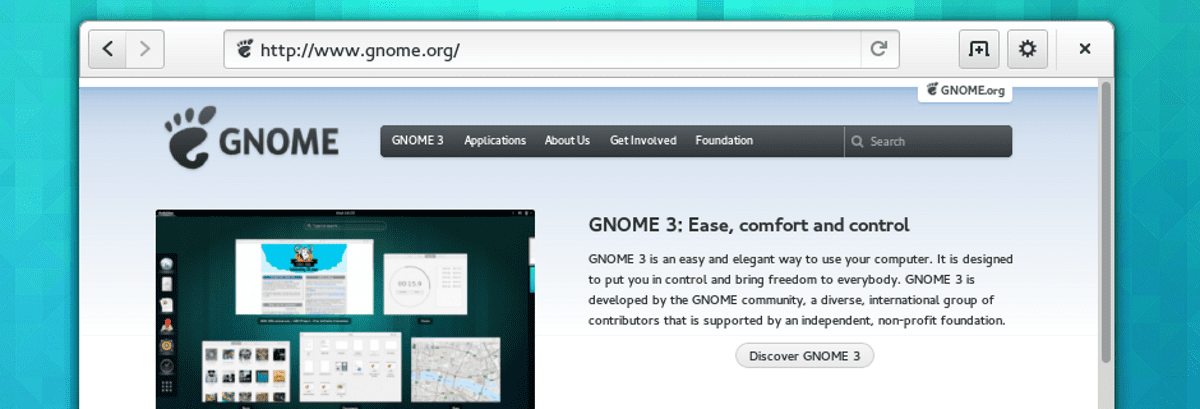
Recently the new version of the web browser Epiphany 3.38 was released which comes based on WebKitGTK 2.30 and that comes with some very interesting news, such as tracking lock enabled by default, as well as being able to import bookmarks and passwords from Chrome and a few other changes.
For those unfamiliar with Epiphany, you should know that it is currently known as Gnome Web and this is a free web browser that uses the WebKit rendering engine for the Gnome desktop environment as it reuses the Gnome settings and frameworks.
WebKitGTK is characterized by allowing the use of all the features of WebKit via a Gnome-oriented programming interface based on GObject and it can be used to integrate web processing tools into any application, from use in specialized HTML / CSS parsers, to creating fully functional web browsers. Of the known projects using WebKitGTK, one can note Midori and the standard Gnome browser "Epiphany".
Main news of Epiphany 3.38
As we mentioned at the beginning, this new version of Epiphany 3.38 comes based on WebKitGTK 2.30 which is a stable version and several of the improvements of this version are added to the browser.
One of them is the support for ITP mechanism (Intelligent Tracking Prevention) to counteract the tracking of user movements between sites. ITP blocks the installation of third-party cookies and HSTS, truncates the transfer of information in the Referrer header, limits Cookies exposed via JavaScript to 7 days, and blocks common tricks to bypass motion tracking blocking.
With that protection against tracking of user movements between sites is enabled by default.
Another improvement received is the support for background filter CSS property to apply graphic effects to the area behind an element.
In addition, the ability to block data storage by sites in local storages in the configuration, as well as the support to import passwords and bookmarks from the Google Chrome browser.
Added ability to set autoplay video relative to individual sites.
The use of GTK themes to render web form elements has been discontinued. Added API to disable GTK use for scroll bars.
An option has been added to the context menu to extract plain text from the clipboard, even if the formatted text is placed on the clipboard.
Of the other changes that stand out:
- Redesigned built-in password manager.
- Added mute / unmute buttons on selected tabs.
- Reworked dialogues with settings and visit history.
- By default, automatic playback of video with sound is prohibited.
- Added support for video formats in the "img" element.
- Video and sound autoplay is disabled by default. Added API to set rules for video autoplay.
- Added an API to mute a specific web view.
How to install Epiphany on Ubuntu and derivatives?
For those interested in installing this new version of Epiphany pYou can do it by enabling the universe repository or by compiling the browser source code on your system.
After just open a terminal and in it they only have to type the following command:
sudo apt install epiphany
Another installation method is by compiling the source code browser. For this they must obtain the source code of Epiphany 3.38 from the following link.
Or from a terminal they can download it with:
wget https://ftp.gnome.org/pub/gnome/sources/epiphany/3.38/epiphany-3.38.0.tar.xz
Fact dThey must unzip the package just obtained, access the resulting folder and perform the compilation by executing the following commands:
mkdir build && cd build [sourcecode text="bash"]meson .. [sourcecode text="bash"]ninja [sourcecode text="bash"]sudo ninja install
I think it is not yet enabled in the repos -_-